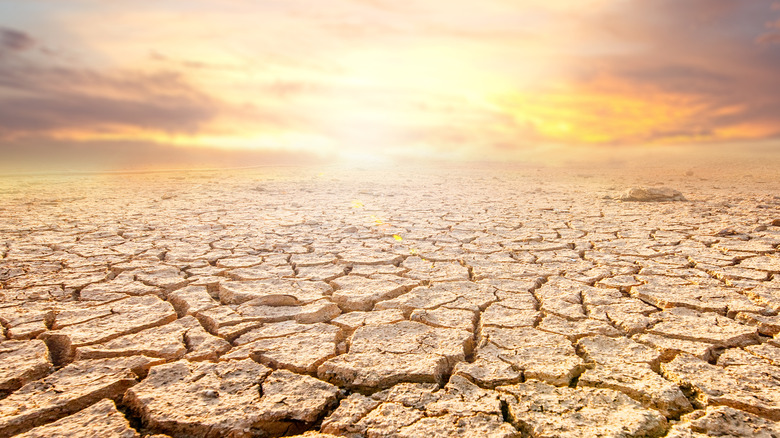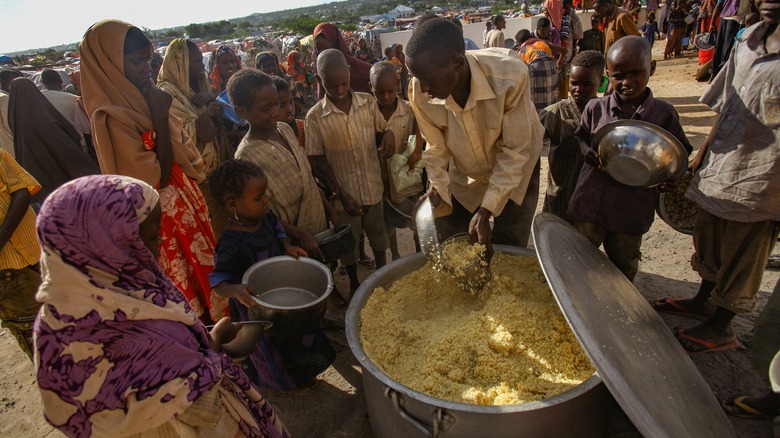How A Never-Before-Seen Dry Season Is Wrecking Africa's Agriculture
Hunger has always been a prevalent topic of discussion when mentioning world issues, but now, in August 2022, more than ever it seems agriculture across the globe is suffering. Although crops like wheat, a product mostly manufactured by Ukraine and Russia, have become more scarce due to the war in Ukraine many other agricultural issues have arisen due to unexpected weather. In Texas, a strawberry shortage has been attributed to the region experiencing intense hot and cold periods (per NBCDFW). And, Brazil has also claimed that a remarkably dry and cold few months may make for a subpar coffee crop this year (via Bloomberg).
But, a dry season in one region of Africa was happening long before any of these alarming new agriculture troubles began. What's worse is that this drought shows no signs of slowing down, according to USAID (via Twitter). The horn of Africa, which is composed of parts of Ethiopia, Kenya, and Somalia, among other countries, has long been regarded as "one of the world's most conflict-prone and fragile regions," (per International Cooperation). However, now due to a consistent lack of rain, the area has become a major part in the ongoing food crisis.
A seemingly endless dry season is limiting Africa's food resources
It is an ongoing lack of rainfall that is responsible for the horn of Africa's severe food insecurity. Indeed, United States Agency for International Development Administrator Samantha Power explained in a podcast posted to USAID's Twitter that this year officially breaks world records as it marks the fourth consecutive season that the region has seen no rainfall. According to Power, this is a phenomenon that has not been witnessed before.
The results have reportedly been devastating as Power noted that the rainy season is usually when people who llive there cultivate crops that are meant to last them until the next downpour. On top of not being able to grow food, almost 9 million livestock have reportedly perished due to drought.
Speaking with News Ghana, the Chief of Mission for the International Organization for Migration in Somalia, Frantz Celestin, said that since early in 2022 the agency has significantly increased its aid to help the hundreds of thousands of people affected. The news outlet also states that more than one million people have been displaced. According to the Center for Strategic and International Studies, 25 million people are projected to be facing intense hunger before the end of this year. And, as Power also reported, the next rainy season is estimated to be dry yet again which means that number is sure to increase in 2023.

